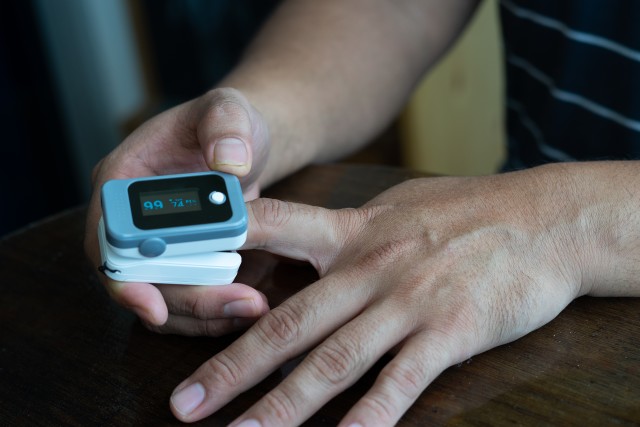We will explore the incredible role that AI plays in diagnosing diseases, its applications in medical imaging, and how it enhances patient care.
We will also delve into the exciting field of AI-driven precision medicine and discuss the ethical considerations surrounding AI implementation in healthcare.
Get ready to uncover the remarkable ways that AI is transforming the landscape of healthcare.
The Role of AI in Diagnosing Diseases
AI is playing a significant role in diagnosing diseases. With its advanced algorithms and machine learning capabilities, AI has revolutionized the field of healthcare.
One of the most significant impacts of AI in disease diagnosis is its ability to detect diseases at an early stage. By analyzing vast amounts of data and patterns, AI algorithms can identify subtle signs and symptoms that may go unnoticed by human doctors. This early detection can lead to timely intervention and improved patient outcomes.
Moreover, AI also plays a crucial role in personalized treatment. By analyzing a patient’s genetic information, medical history, and lifestyle factors, AI can provide personalized treatment plans tailored to the individual’s specific needs. This not only improves treatment effectiveness but also reduces the risk of adverse effects.
Overall, AI’s contribution to disease diagnosis is invaluable in providing early detection and personalized treatment options.
AI Applications in Medical Imaging
The use of AI in medical imaging has greatly improved the accuracy of diagnoses. With AI technology, radiology diagnosis is becoming more automated, leading to quicker and more precise results.
This advancement in AI applications in medical imaging has revolutionized the field of healthcare. By analyzing large amounts of data, AI algorithms are able to detect subtle patterns and anomalies that may not be noticeable to the human eye. This has led to a significant improvement in the early detection of diseases such as cancer.
AI can analyze medical images with incredible speed and accuracy, enabling healthcare professionals to make more informed decisions and provide timely treatments. The integration of AI in medical imaging is transforming the way diagnoses are made, ultimately improving patient outcomes and saving lives.
Enhancing Patient Care With AI Technology
By leveraging AI technology, healthcare providers are able to enhance patient care through improved diagnostic accuracy and personalized treatment plans.
AI-enabled patient monitoring allows healthcare professionals to gather real-time data on health status, intervening promptly and preventing potential complications.
AI-powered virtual assistants support the healthcare journey by providing personalized health recommendations, reminders, and answering medical questions.
These virtual assistants also help healthcare providers streamline administrative tasks, freeing up more time to focus on delivering high-quality care.
AI-Driven Precision Medicine
Leveraging AI technology allows healthcare providers to personalize treatment plans and improve diagnostic accuracy, ultimately enhancing patient care.
AI-driven precision medicine is revolutionizing the field of healthcare by tailoring treatments to the unique needs of individual patients. Through advanced algorithms and machine learning, AI can analyze vast amounts of patient data and identify patterns that may not be apparent to human physicians.
This enables healthcare providers to make more accurate diagnoses and develop personalized treatment plans that take into account a patient’s specific genetic makeup, lifestyle, and medical history. The clinical applications of AI in precision medicine are vast, ranging from cancer treatment to mental health interventions.
Ethical Considerations in AI Implementation in Healthcare
When implementing AI technology in healthcare, you should carefully consider the ethical implications and potential risks involved. Data privacy is one of the key concerns that must be addressed. As AI systems collect and analyze patient data, it is crucial to ensure that this information is protected and used in a secure and responsible manner. Strict protocols should be in place to safeguard sensitive data and prevent unauthorized access.
Another important consideration is bias detection. AI algorithms are only as good as the data they are trained on. If the training data contains biases, it can lead to discriminatory outcomes in healthcare decision-making. To mitigate this risk, it is essential to regularly monitor and evaluate AI systems for potential biases and take corrective actions when necessary.
Conclusion
In conclusion, artificial intelligence has revolutionized healthcare. It plays a significant role in diagnosing diseases, improving medical imaging, enhancing patient care, and driving precision medicine.
With AI technology, healthcare professionals can make accurate and timely diagnoses, leading to better treatment outcomes. This has the potential to greatly benefit the healthcare industry and improve patient outcomes.
However, ethical considerations must be taken into account when implementing AI in healthcare. It is important to ensure patient privacy, data security, and fairness.
Overall, AI has the potential to greatly benefit the healthcare industry and improve patient outcomes.
